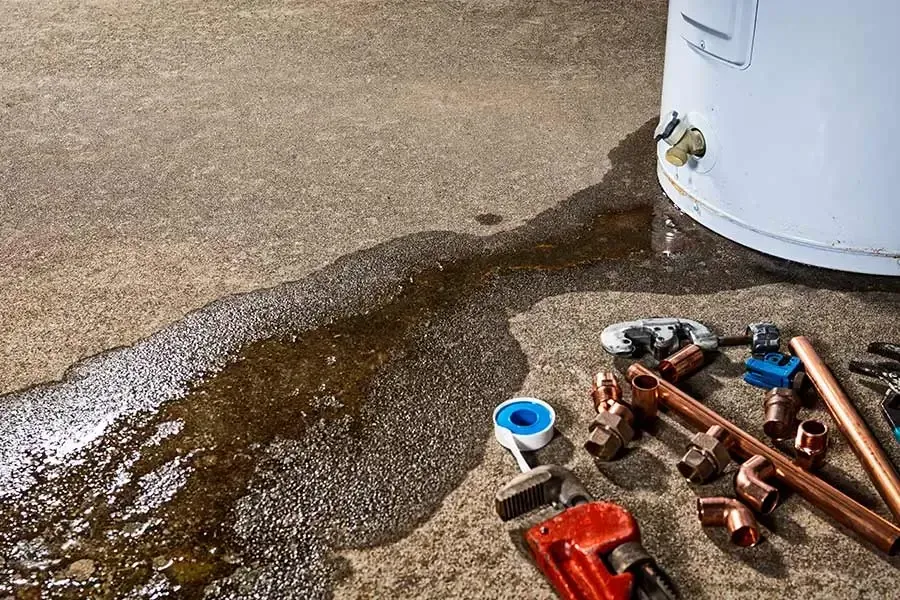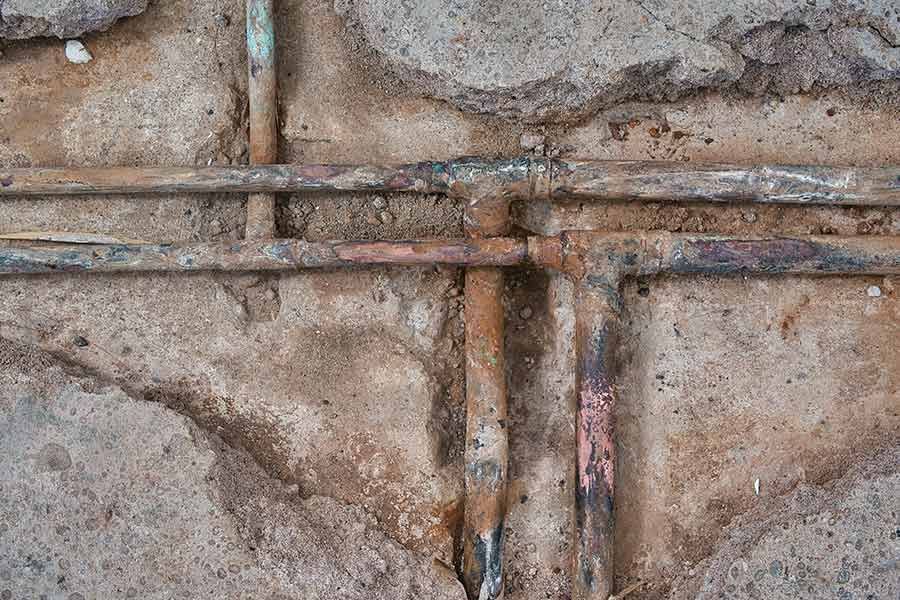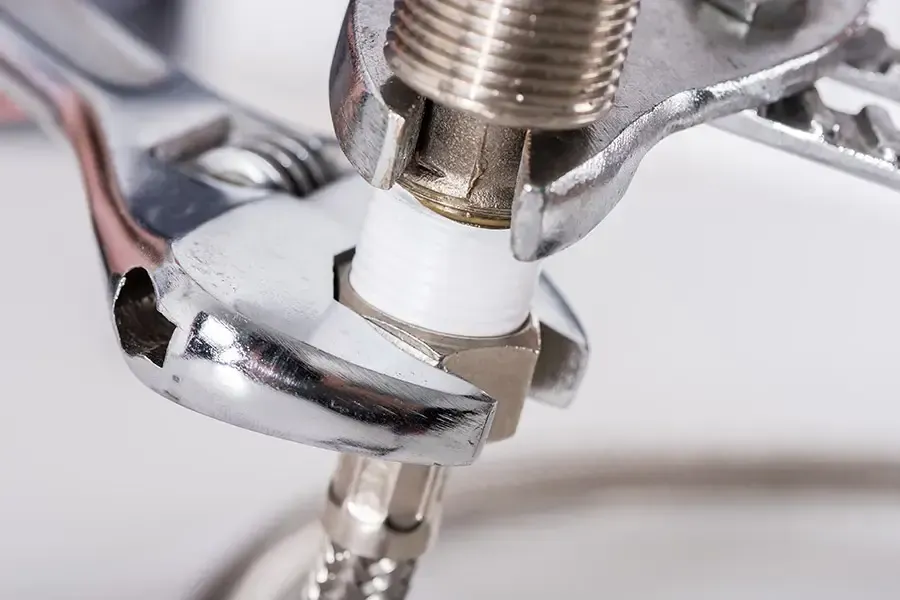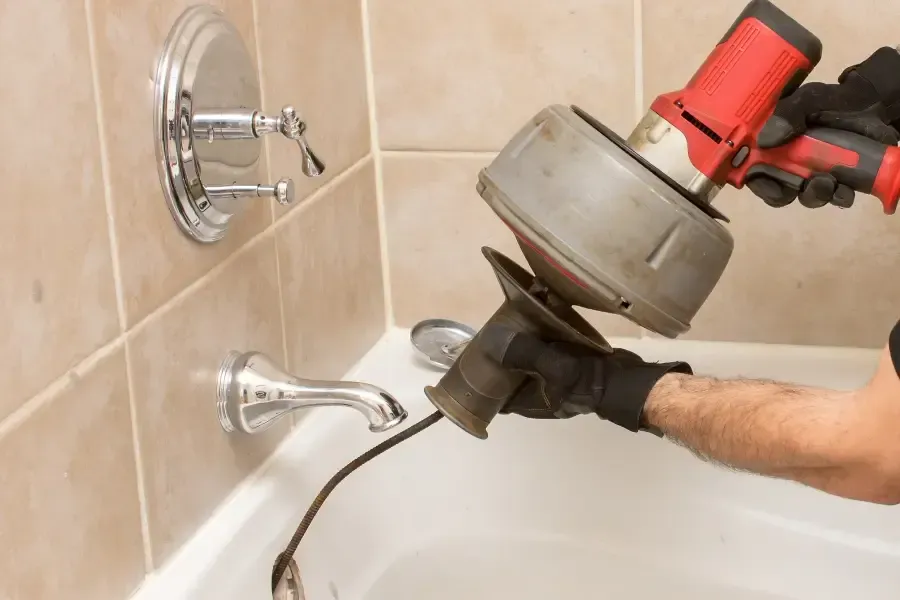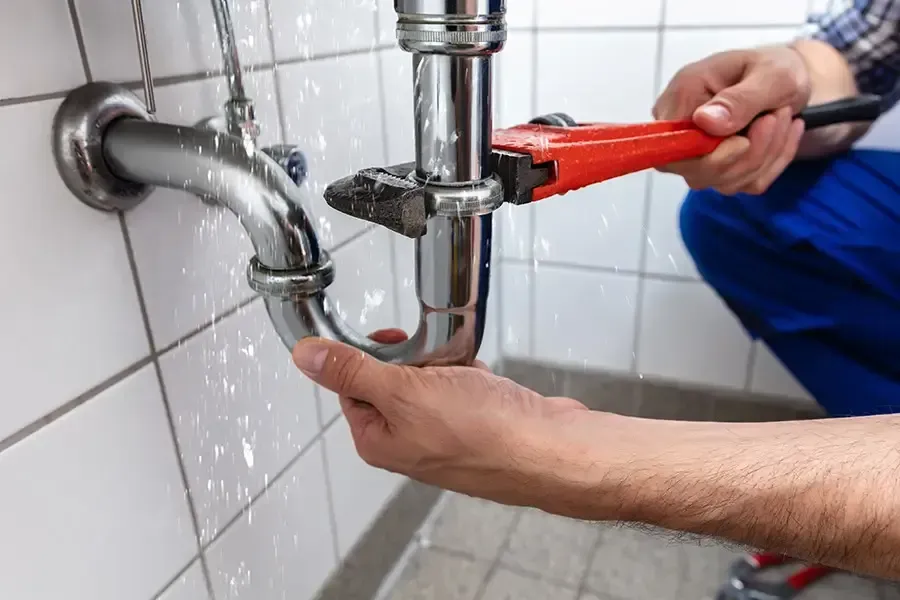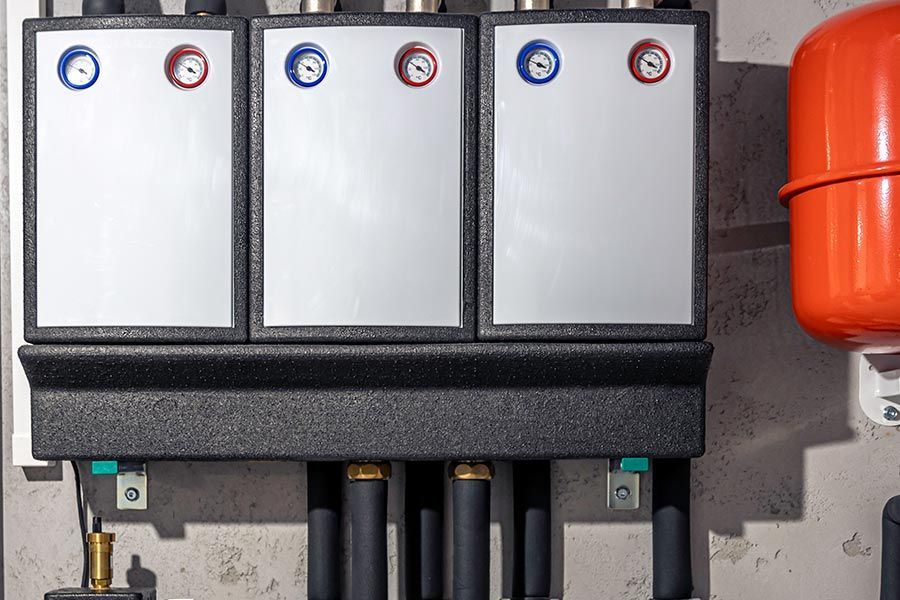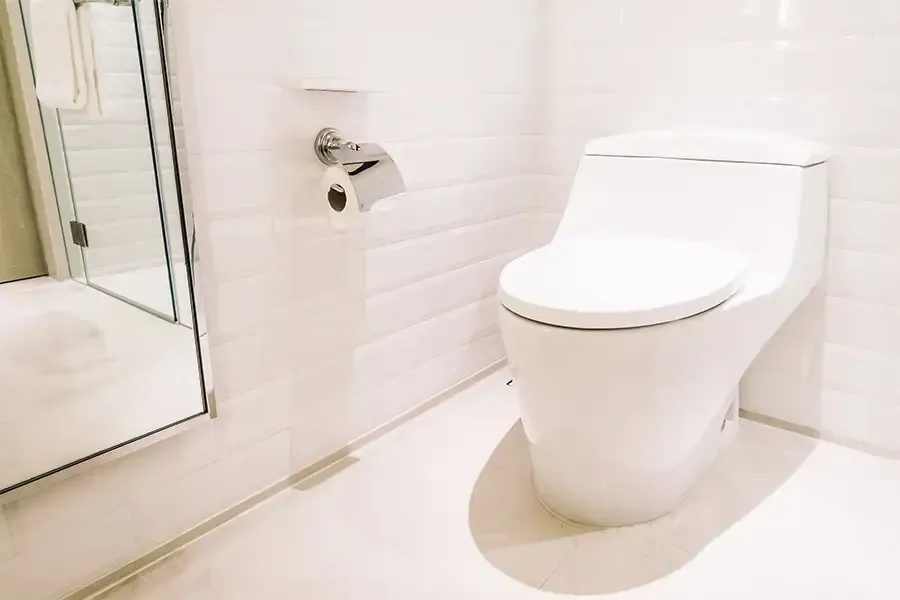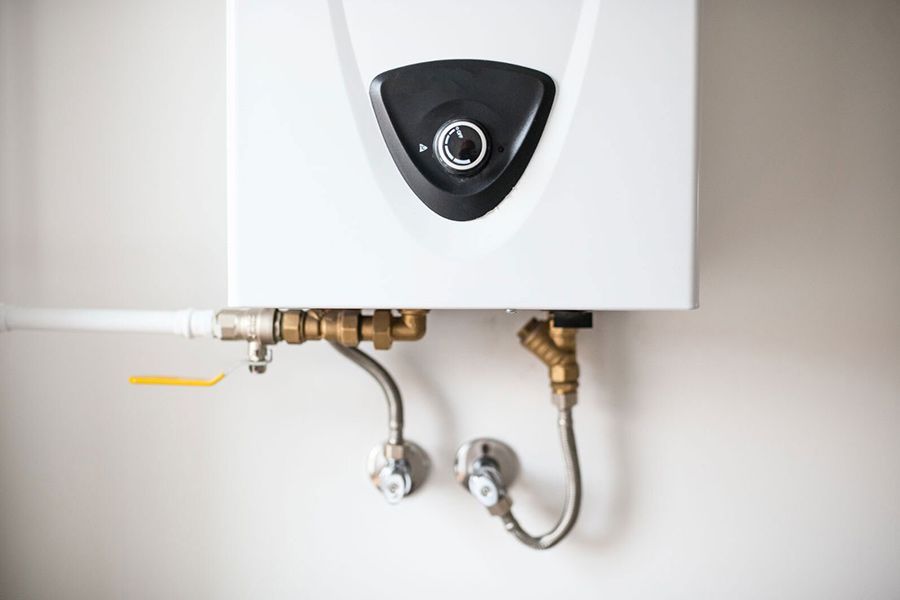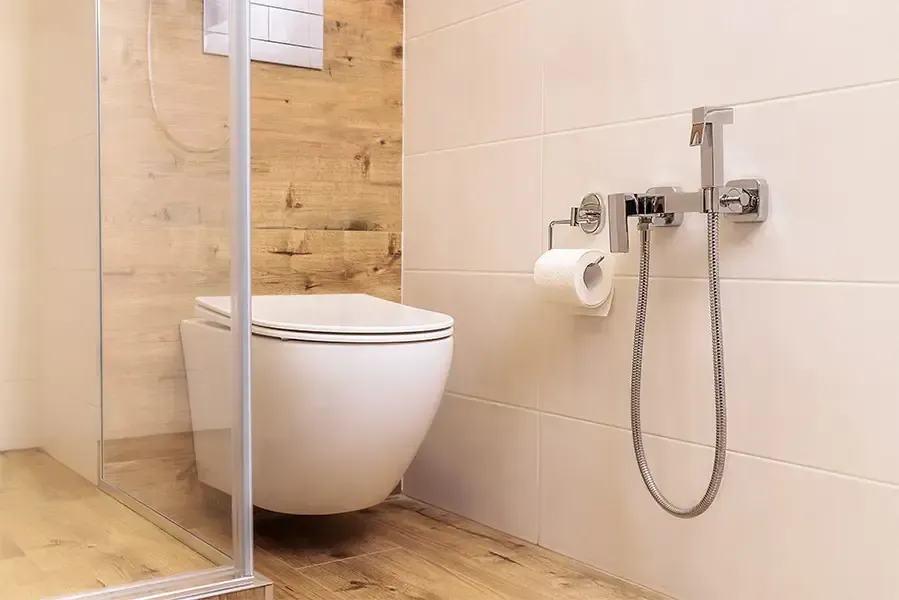Is a Leaking Water Heater Dangerous?
As a homeowner, you’ve probably dealt with a leak of some kind. Even the smallest leaks can become frustrating as they drip water onto your floors and create small puddles. Leaks can come from several different sources throughout the house, including your plumbing system and any appliances that contain water.
Because they hold and transfer numerous gallons of water, water heaters act no differently. Though a small leak from your water heater shouldn’t cause any structural water damage to your home, it could worsen or represent other water heater issues. Therefore, you might wonder: Is a leaking water heater dangerous?
The short answer to the question is yes, a leaking water heater is dangerous. To help you understand why, we provide a more complete explanation of the potential risks of a water heater leak. For more information, call Wickliffe’s water heater repair experts at Formica Plumbing and Sewer Co. today.
Why Is a Leaking Water Heater Dangerous?
When you initially notice a leak in your water heater, it will likely be small, with only a minimal amount of water dripping from the appliance. So, why is a leaking water heater dangerous?
Even a minor leak presents several risks. If you don’t quickly assess the issue, the leak could grow, and other water heater problems could arise.
Potential Dangers of a Leaking Water Heater
Flooding
If you don’t allow a professional to look over your leaking water heater, the source of the leak could expand. Excessive leaking from your water heater could lead to flooding. Flooding often results in costly damage to a home’s floors and foundation.
Scalding Water
A leaking water heater continues to heat the remaining water inside the tank. That remaining water can overheat and become scalding hot, causing burns as it flows out of your showers, sinks, and other fixtures.
Gas Leak
Typically, when a water heater starts leaking, it represents a more severe issue. Often, it means some part of the water heater isn’t functioning correctly. For a gas water heater, a gas leak or gas control valve issue could be the culprit, so call for emergency service if you suspect such a problem.
Common Causes of Water Heater Leaks
Sediment Buildup
Because water heaters consist largely of iron, they can experience corrosion and rusting over time. Although the water heater’s anode rod protects against corrosive elements, the anode rod only lasts about five years. Near the end of its lifespan, the anode rod may fail to filter sediment.
When sediment builds up at the bottom of your water tank, it can create small leaks. As we mentioned, even small leaks can lead to flooding and water damage, as well as more serious issues.
To check whether your anode rod is at the end of its lifespan, keep an eye on your tap water. Old anode rods result in brown, rusty-looking tap water. Replace your water heater’s anode rod to avoid leaks.
Temperature and Pressure (T&P) Valve Problems
Leaks from a water heater’s temperature and pressure valve are the most serious. As the water inside the tank heats up, pressure builds. Once the temperature reaches a preset degree, the T&P valve helps relieve the pressure inside your water heater by sensing the temperature and releasing water or excess pressure through a safety valve.
When water leaks from the T&P valve, it means you have a malfunctioning valve. A malfunctioning T&P valve can lead to the temperature or pressure inside the tank rising to an unsafe level. In some cases, the pressure can cause the water heater tank to burst or explode, resulting in injury, significant water damage, and even a fire.
Though water heater tank explosions are rare, they do occur. If you notice your T&P valve leaking, immediately turn off the power and water. Call a professional to inspect your water tank and purchase a new T&P valve.
Top Leaks vs. Bottom Leaks
Top Water Heater Leaks
Generally, a water heater leaking from the top is easier to fix than one leaking from the bottom. The top of your water heater leaking usually means a T&P valve leak or a cold water inlet leak, each of which requires simply tightening or replacement. If neither of those caused the leak, check to see if the pipes above your water heater leak onto the outlet connections.
Bottom Water Heater Leaks
If your water heater leaks from the bottom, you face a higher risk of water damage. A bottom water heater leak could result from sediment buildup, condensation buildup, or an open drain valve. If it’s none of those, shut off the bottom of the tank to see if a top leak is running off to the bottom.
What To Do if You Have a Leaking Water Heater
Even if your water heater leak doesn’t originate from the T&P valve, we recommend turning off the power and water inside your home. Go to your circuit breaker box and turn the breaker that controls your water heater’s power to “off.” Then, go to the cold water shut off valve and turn off the water supply to your water heater, as a leaking electric water heater presents safety risks.
Next, call the experts at Formica Plumbing and Sewer Co. As a professional plumbing company that offers emergency service, we’ll come to inspect your water heater, diagnose the problem, and repair any leaks to help you avoid significant damage. We know a leaky water heater can affect your daily routine, so we’ll work efficiently yet thoroughly to address the issue.
Call Formica Plumbing and Sewer Co. Today
Is a leaking water heater dangerous? As we’ve outlined, a water heater leak, no matter the size, presents dangers to you, your family, and your home. If you notice a leak from your water heater, contact professionals immediately.
At Formica Plumbing and Sewer Co., our plumbing experts know how to deal with all types of water heater leaks. Call us today at
440-485-3850 to schedule service or learn more about professional
water heater replacement.

